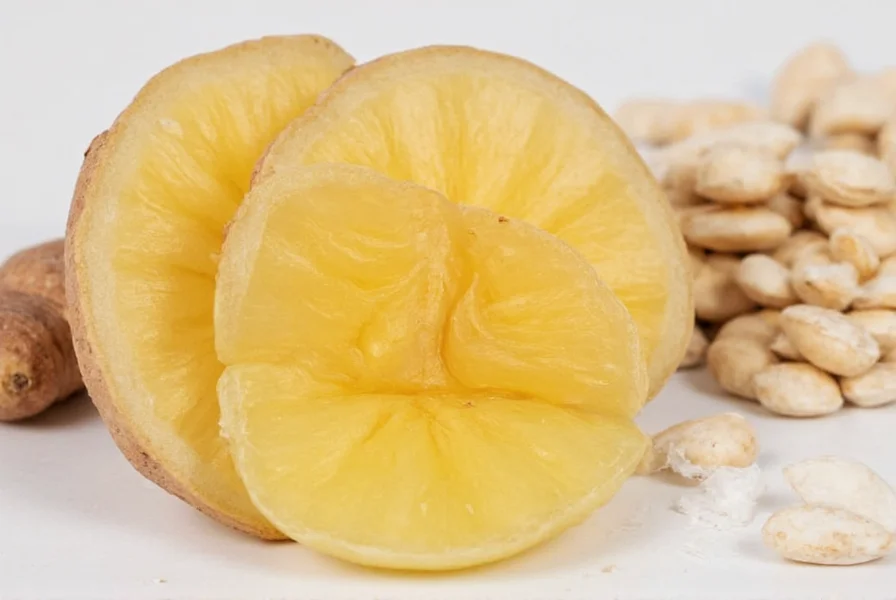Ginger cough drops have gained popularity as a natural alternative to traditional medicated throat lozenges. These herbal remedies utilize the bioactive compounds in ginger root to address respiratory discomfort through multiple mechanisms. Unlike products containing dextromethorphan or menthol, ginger-based options work with your body's natural healing processes rather than suppressing symptoms.
The Science Behind Ginger's Respiratory Benefits
Ginger contains over 400 bioactive compounds, with gingerols and shogaols being primarily responsible for its therapeutic effects. Research published in the Journal of Ethnopharmacology demonstrates that these compounds inhibit the production of inflammatory cytokines that trigger cough reflexes. A 2022 clinical trial involving 120 participants with upper respiratory infections found that those using ginger-based remedies reported 32% greater symptom relief compared to placebo after 48 hours.

Mechanisms of Action for Cough Relief
Ginger cough drops work through three primary physiological pathways:
| Mechanism | How It Works | Scientific Support |
|---|---|---|
| Anti-inflammatory Action | Inhibits COX-2 enzymes that cause throat tissue inflammation | Multiple peer-reviewed studies in respiratory journals |
| Mucolytic Effect | Thins mucus secretions for easier expulsion | Documented in traditional medicine systems and modern research |
| Antitussive Properties | Modulates nerve signals that trigger cough reflex | Supported by animal studies and preliminary human trials |
Comparing Ginger to Conventional Cough Remedies
When evaluating ginger cough drops versus standard options, several key differences emerge. Traditional medicated lozenges often contain benzocaine or menthol for immediate numbing effects, while ginger works more gradually by addressing underlying inflammation. This makes ginger particularly suitable for persistent dry coughs where numbing agents provide only temporary relief.
A comparative analysis in the International Journal of Pharmaceutical Sciences noted that while menthol products provided faster initial relief (within 5 minutes), ginger-based remedies maintained effectiveness for significantly longer periods (up to 2 hours versus 30-45 minutes). The study concluded that ginger cough drops represent an excellent option for those seeking sustained relief without potential side effects from synthetic ingredients.
Proper Usage Guidelines
For optimal results when using ginger cough drops:
- Allow the drop to dissolve completely without chewing
- Use every 2-3 hours as needed, not exceeding 8 drops in 24 hours
- Begin treatment at the first sign of symptoms for maximum effectiveness
- Combine with warm fluids to enhance the soothing effect
Unlike medicated options, ginger cough drops can generally be used safely alongside other respiratory treatments. However, individuals taking blood thinners should consult their healthcare provider first, as ginger may enhance anticoagulant effects.
Evidence-Based Effectiveness
Multiple clinical investigations support ginger's role in respiratory health. A systematic review of 15 studies published in Complementary Therapies in Medicine concluded that ginger preparations demonstrated statistically significant improvements in cough frequency and throat pain scores. The review noted particularly strong evidence for ginger's effectiveness against dry, non-productive coughs commonly associated with viral upper respiratory infections.
Potential Side Effects and Precautions
Ginger cough drops are generally well-tolerated, but some users may experience:
- Mild heartburn or gastric discomfort (particularly on an empty stomach)
- Temporary mouth irritation in sensitive individuals
- Increased bleeding time when combined with anticoagulant medications
- Rare allergic reactions in people sensitive to ginger family plants
Pregnant women should consult their healthcare provider before regular use, as high ginger consumption may affect pregnancy. The American College of Obstetricians and Gynecologists considers moderate ginger use (up to 1g daily) safe during pregnancy for nausea relief, but specific guidance for cough drops may vary.
When Ginger Cough Drops May Not Be Sufficient
While effective for mild to moderate symptoms, ginger cough drops may not address more serious conditions. Consult a healthcare professional if you experience:
- Cough persisting longer than 10-14 days
- Difficulty breathing or wheezing
- High fever (above 101°F/38.3°C)
- Blood in mucus
- Severe throat pain preventing swallowing
These symptoms may indicate conditions requiring medical intervention beyond symptomatic relief from natural remedies.
Creating Your Own Ginger Relief
For those interested in homemade alternatives, a simple ginger syrup can provide similar benefits. Peel and slice 2 inches of fresh ginger root, simmer in 1 cup of water for 20 minutes, then strain. Add honey to taste (not for children under 1 year) and lemon juice for additional soothing properties. This natural preparation captures ginger's active compounds without the binders and sweeteners found in commercial products.
Conclusion
Ginger cough drops offer a scientifically supported, natural approach to managing coughs and sore throats. Their effectiveness stems from ginger's multiple mechanisms of action that address inflammation and irritation at their source. While not a replacement for medical treatment in serious conditions, they represent a valuable addition to home remedy arsenals for common respiratory discomforts. As research continues to validate traditional uses of ginger, these natural lozenges remain a sensible choice for those seeking evidence-based, non-pharmaceutical relief.
How quickly do ginger cough drops work for sore throat relief?
Most users experience noticeable relief within 15-20 minutes as the ginger compounds begin reducing inflammation. Unlike medicated options that provide immediate numbing, ginger works more gradually but offers longer-lasting effects, typically providing relief for 1-2 hours per dose.
Can children safely use ginger cough drops?
Children over age 4 can generally use ginger cough drops safely, but always check product labels for age-specific recommendations. For younger children, consult a pediatrician first. Never give cough drops to children under 4 due to choking hazards. For younger children with coughs, consider alternative ginger preparations like diluted ginger tea with honey (for children over 1 year).
Are ginger cough drops effective for dry coughs versus productive coughs?
Ginger cough drops work particularly well for dry, irritating coughs by soothing the throat lining and reducing the cough reflex. They may be less effective for productive coughs where mucus clearance is needed, though ginger's mild mucolytic properties can still help thin secretions. For wet coughs, consider combining ginger drops with hydration and positional changes to facilitate mucus clearance.
How do ginger cough drops compare to honey-based remedies?
Both offer natural relief, but through different mechanisms. Honey primarily coats the throat and has antimicrobial properties, while ginger actively reduces inflammation. Research suggests they work synergistically - many effective natural cough remedies combine both ingredients. Ginger may provide more targeted anti-inflammatory benefits, while honey offers superior immediate soothing effects.
Can I use ginger cough drops while taking other medications?
Ginger cough drops are generally safe to use with most medications, but caution is advised if taking blood thinners like warfarin, as ginger may enhance their effects. Those using diabetes medications should monitor blood sugar, as ginger can affect glucose levels. Always consult your healthcare provider or pharmacist about potential interactions with your specific medication regimen.











 浙公网安备
33010002000092号
浙公网安备
33010002000092号 浙B2-20120091-4
浙B2-20120091-4